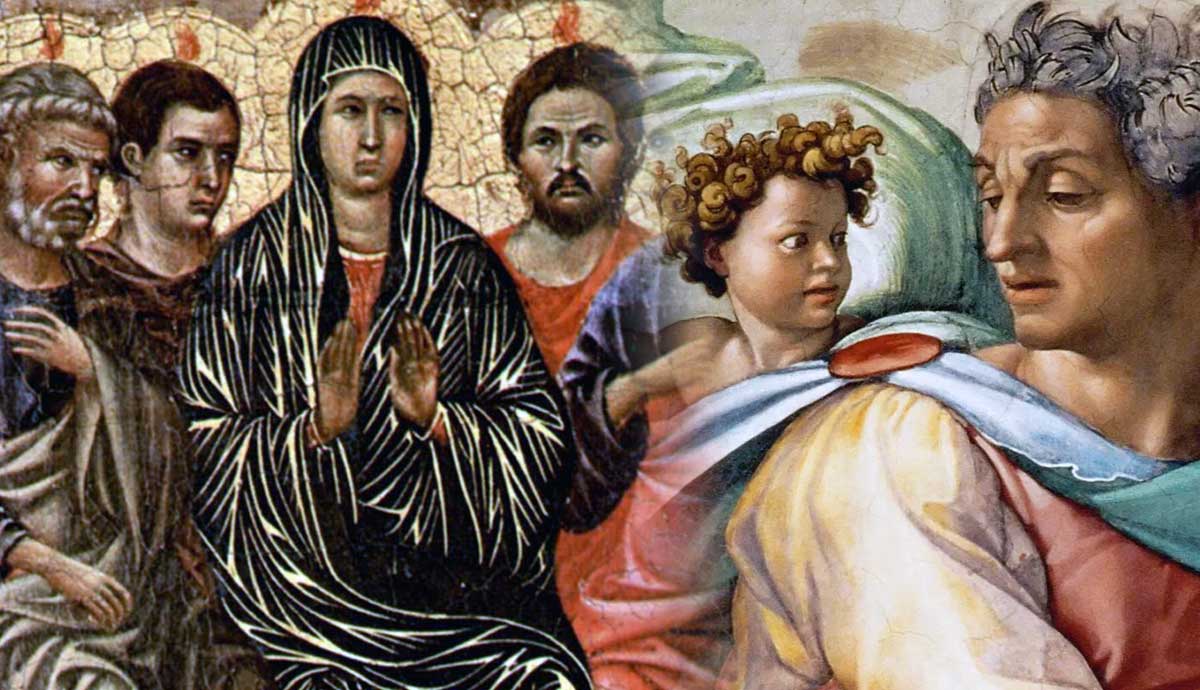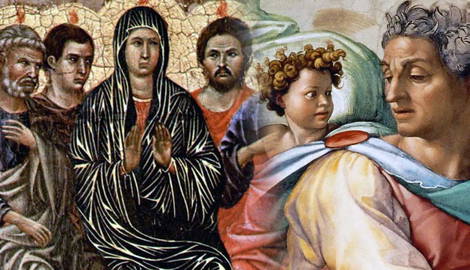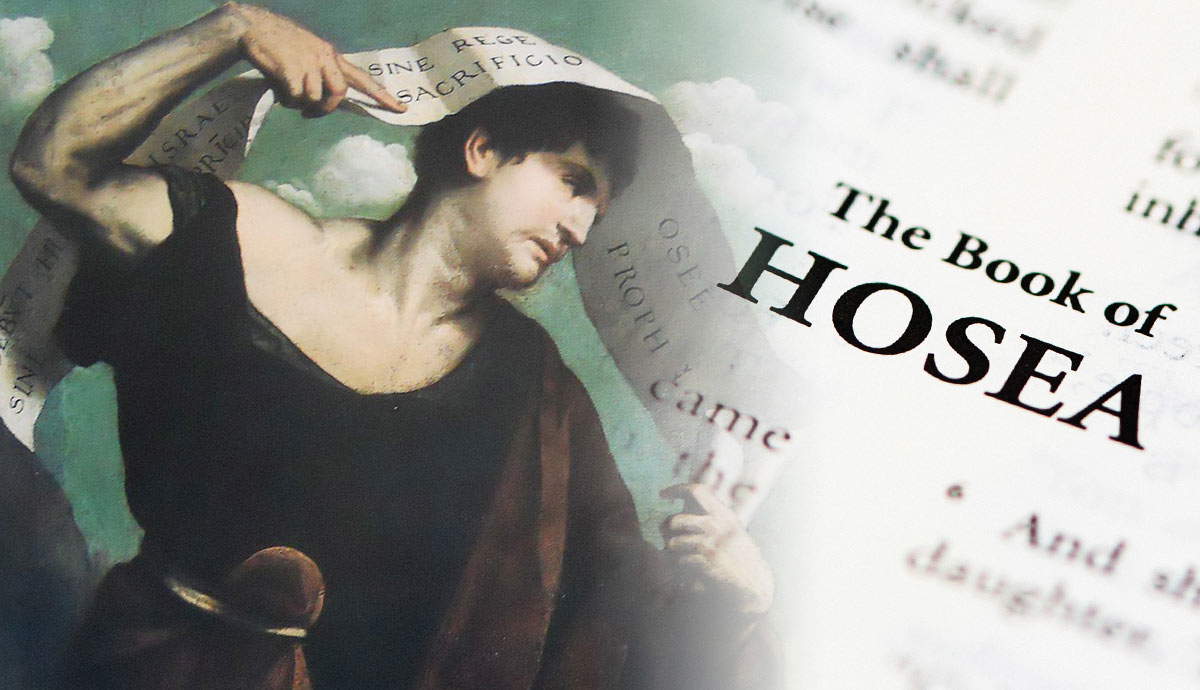
Prophecies that do not have a conditional clause or are contextually unchangeable are designated unconditional prophecies. Human action or intervention cannot modify the outcome of these prophecies.
There are several kinds of unconditional prophecies. In the Christian faith, messianic and apocalyptic prophecies are the most notable examples. Such biblical prophecies may change the behavior of some people but the outcome remains the same though it may not impact the person who heeded the prophecy.
Messianic Prophecies

As the name indicates, these prophecies relate to the Messiah. In Christianity, sometimes prophecies are embedded in a psalm, and at other times, prophets proclaim them more directly. They usually deal with a specific aspect of the Messiah’s coming, ministry, death, or resurrection.
Examples of messianic prophecies include:
Isaiah 7:14
“Therefore the Lord himself will give you a sign. Behold, the virgin shall conceive and bear a son, and shall call his name Immanuel.”
The virgin birth was another unconditional prophecy central to God becoming a man. Though Jesus was never named Immanuel, the Hebrew term for name—shem—also refers to character, authority, or reputation. Immanuel means “God with us” (see Matthew 1:23), which was realized by Jesus.
Micah 5:2
“But you, O Bethlehem Ephrathah, who are too little to be among the clans of Judah, from you shall come forth for me one who is to be ruler in Israel, whose coming forth is from of old, from ancient days.”
Micah 5:2 shares additional information on where Jesus would be born. His birthplace was not a conditional matter. According to Matthew 2:1 and Luke 2:4-7, this prophecy was fulfilled.
Zechariah 9:9
“Rejoice greatly, O daughter of Zion! Shout aloud, O daughter of Jerusalem! Behold, your king is coming to you; righteous and having salvation is he, humble and mounted on a donkey, on a colt, the foal of a donkey.”
Matthew 21:7 and John 12:14 record the fulfillment, with John 12:15 pointing to the prophecy that foretold it.

Many scholars consider Genesis 3:15 as the first Messianic prophecy. It is very cryptic and provides no detail other than indicating a savior will come to defeat Satan.
Some psalms also contain elements that scholars believe may reflect aspects of messianic prophecy. Psalm 22 is one example. Verse 1 starts with the words “My God, my God, why have you forsaken me?” while verses 16 and 18 mention “…they have pierced my hands and feet” and “they divide my garments among them, and for my clothing they cast lots.” These elements all reflect Jesus’s experience on the cross.
Prophecies of Promise

Prophecies of promise can relate to restoration or empowerment. Examples would be the promise of the restoration of Jerusalem and the temple when the Southern kingdom of Judah was exiled to Babylon but returned to rebuild their city and holy place by the authority of the Persian rulers in the time of Artaxerxes.
When Jesus foretold the outpouring of the Holy Spirit, it served as a promise of empowerment that came 50 days later, on Pentecost. The apostles were empowered, as promised, to spread the gospel to the ends of the earth. The empowerment came as the ability to speak other languages not learned by any natural process. It was a supernatural ability that saw many believers speak languages they did not learn by natural processes. They could suddenly comprehend and speak other languages to spread the gospel message.
Apocalyptic Prophecy

Both the Old and New Testaments contain apocalyptic prophecies. As the name suggests, this kind of prophecy deals with end-time events. One characteristic of apocalyptic prophecy is its symbolism. In books like Daniel and Revelation, we encounter statues, beasts, and other symbols representing various empires, beings, or religio-political systems.
For example, many Christians believe the statue Nebuchadnezzar saw in his dream detailed in Daniel 2 reveals the sequence of empires from the time of Babylon up to the establishment of the eternal kingdom of God. Daniel declares to the king that he (Nebuchadnezzar) is the head of gold, pointing to the Babylonian empire he ruled. A chest and arms of silver followed the head of gold, which depicts the Persian Empire. The Greeks conquered the Persians, making them the loins of brass. Legs of iron followed the brass, representing the Roman Empire who conquered the Greeks. The feet of iron and clay reflected a divided Rome and may reflect modern-day Europe. If this interpretation is correct, the prophecy from Daniel 2 has unfulfilled elements. The rock that strikes the feet, which resembles the establishment of the eternal kingdom of God, remains unfulfilled.
Similarly, the sequence of beasts in Daniel 7 also reveals the sequence of empires. The winged lion was a symbol of the Babylonian Empire. The bear with three ribs in its mouth would be the Persian Empire, followed by Greece depicted as a four-headed leopard. The last, nondescript beast serves as a portrayal of the Imperial and Papal Rome.
Sometimes, scholars challenge these interpretations of Daniel 2 and 7, offering alternative interpretations depending on the model of prophetic interpretation they follow. The highly symbolic nature of apocalyptic prophecy lends itself to many interpretations. The challenge is to find one that makes sense and remains true to the principles of prophetic interpretation.
The Purpose of Unconditional Prophecy

While conditional prophecy often serves as a warning and presents an opportunity to change to prevent a negative outcome, unconditional prophecy has a different purpose. John 13:19 and 14:29 provide a partial motivation for revealing the future. Fulfilled prophecy builds faith.
Of course, in some instances, unconditional prophecy can also serve as a deterrent from certain actions, lifestyles, and attitudes, but unlike conditional prophecy, the outcome will still occur, and the individual who modified his/her behavior may not be affected by the outcome.
Unconditional prophecy can also serve as encouragement in times of suffering and strife. The Jews in exile had their hope for the future strengthened by the prophecies of restoration and return to their motherland.
Partially Fulfilled Prophecies

A single event does not necessarily fulfill a prophecy. Consider the destruction of Tyre as an example. Ezekiel 26-28 details the destruction of Tyre and states that no nation will rebuild the city. Nebuchadnezzar II attacked and conquered the city in 586 BCE, but parts of the prophecy remained unfulfilled. Ezekiel 26:12b notes: “Your stones and timber and soil they will cast into the midst of the waters.” That never happened during the Babylonian onslaught on Tyre.
After the partial destruction of Tyre on the mainland, the citizens reconstructed the city on an island a short distance offshore. When Alexander attacked the island city, he constructed a causeway from the mainland to the island so his armies could breach it. Even after the conquest of Tyre by Alexander, it still served as a relatively significant port. Through gradual decline, it eventually became no more than a fisherman’s village, which is possibly what Ezekiel 26:14 points out: “I will make you a bare rock. You shall be a place for the spreading of nets. You shall never be rebuilt, for I am the LORD; I have spoken, declares the Lord GOD.” Tyre never reached its former glory again.
Unfulfilled Unconditional Prophecies

There are apocalyptic prophecies that are yet unfulfilled. These prophecies deal with a wide range of events and include both destructive and uplifting elements. Of the former, 2 Peter 3:9-12 reads:
“The Lord is not slow to fulfill his promise as some count slowness but is patient toward you, not wishing that any should perish, but that all should reach repentance. But the day of the Lord will come like a thief, and then the heavens will pass away with a roar, and the heavenly bodies will be burned up and dissolved, and the earth and the works that are done on it will be exposed. Since all these things are thus to be dissolved, what sort of people ought you to be in lives of holiness and godliness, waiting for and hastening the coming of the day of God, because of which the heavens will be set on fire and dissolved, and the heavenly bodies will melt as they burn!”
This prophecy foretells the destruction from creation, yet Revelation 21:1 also speaks of the creation of a new heaven and a new earth:
“Then I saw a new heaven and a new earth, for the first heaven and the first earth had passed away, and the sea was no more.”
These prophecies, found in different books of the Bible, align with many other prophecies (e.g. Jeremiah 4:23-27 and Isaiah 65:17 and 66:22) but remain unfulfilled. To many believers, fulfilled unconditional prophecies from the past guarantee that unfulfilled unconditional prophecies in scripture will also come to pass in the future.










